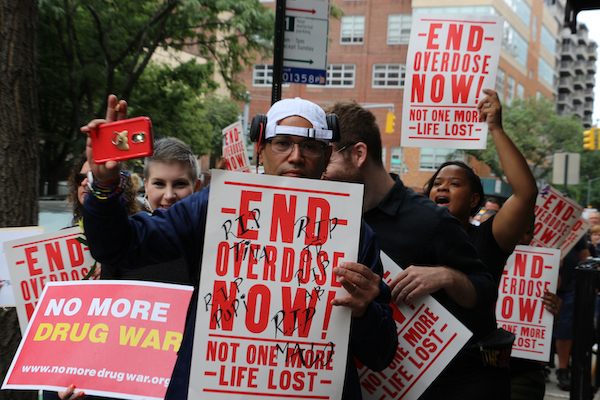Don’t punish yourself for failing—focus instead on what led to your slip and taking the next step to future recovery
Patrick McElwaine, Psy.D.
July 23, 2020Time and again, I’ve heard my clients beat themselves up about their relapses: How did this happen—again?
I get it. This is a question I too asked myself, over and over, when I struggled with my own addiction to drugs and alcohol more than a decade ago. And here’s what I gently remind them, although it took me a long, long time to figure this out for my own hard-headed self: Yes, relapses or lapses can trigger negative thoughts of being a failure, a loser, who will never be successful in recovery. Set those thoughts aside—because they aren’t true. You’re not a failure, you’re not a loser, and you can be successful in recovery—try again, starting now.
Because here’s the thing to focus on: Relapse can be a powerful learning experience. What will you take forward from yours to help you today and tomorrow?
Relapse is an invitation to ask yourself: What led to it? A relapse doesn’t start when you drink from the bottle, swallow pills, snort a line, or inject your drug. A relapse starts days, weeks, often months before you have that “f”–it moment and find yourself falling back into your addiction.
Sit down and make a list or just make the time to really think, as you look back: What was happening in your life prior to your slip? What clues did you leave on the road to relapse? Examples might be a couple of missed meetings here and there, skipping seeing your therapist or cutting back on therapy sessions, surrounding yourself with toxic individuals, getting back to old maladaptive behaviors, finding yourself lying about small things. And so on.
Here’s one positive thing relapse gives you: self-knowledge. It’s extremely beneficial to your recovery to step back and identify even the most small-seeming behaviors, events and interactions in your life that led you astray. Because they add up to potentially big things that can harm your sobriety and/or reduce your chances of successful recovery.
When relapse happens to my clients, after they look at what led up to it, I then recommend they move forward by adopting the right-for-them combination of the following big four: meetings (in my case, 12 steps), medication, therapy and honesty. (I personally rely on all four, but that’s me: Everyone has their own custom formula to increase the odds of treatment success, I’ve found with my years of practice with my clients.)
A relapse doesn’t start when you drink from the bottle, swallow some pills, snort a line or inject your drug. A relapse starts days, weeks, often months before.”
Here are four push-back questions I often get from my clients:
One: What if I don’t like meetings? I get that too. Early on in treatment and recovery, I too found it pretty easy to focus on the negative aspects of group meetings. I encourage people (and I did this myself) to try to find just one positive aspect of a group and/or 12-step meeting and focus on that. This allows you to filter out the negative aspects collected during the meeting and focus on the one or two benefits that can help you stay the course.
Two: I don’t want to take medication. Is it important? It is, I’ve found. MAT, or Medication Assisted Treatment and other pharmacological interventions prescribed by a treatment professional for an addiction and/or mental health concerns can be crucial to getting started and staying with it. Communicating with your doctor and taking your medication as prescribed can greatly increase your likelihood of being successful in treatment, studies show.
Here’s one positive thing relapse gives you: self-knowledge. It’s extremely beneficial to your recovery to step back and identify even the most small-seeming behaviors, events and interactions in your life that led you astray.”
Three: Aren’t meetings enough? Do I have to go to therapy too? Yes, you should. Therapy really helps, I’ve found with my clients and myself. Finding a therapist you connect with to work through the likely underlying reasons of your addiction can greatly increase the chances of successful recovery.
Four: Honesty , really?That’s not an action. I know, it’s a character quality to strive for and it’s crucial to success. Prioritize it. Being honest with others, and most important with yourself, is essential for recovery. It takes away the pressure of pretending you’re OK, when you don’t feel OK. It’s fine to let people know that you are struggling and admit that it is hard staying sober.. Sometimes, our go-to is to lie, even if it’s a white lie, in order to escape an uncomfortable moment, to move on to the next subject, or because we are so used to lying that it feels ingrained in us. This is an area that we need to be very cognizant of. Curb your impulse to lie and to focus more on being honest and trustworthy—it will free you and open you up to your future possibilities and all that life after relapse offers.
Patrick McElwaine, Psy.D., LPC, is known as “Dr. Mac” to his clients, students, and colleagues. He has his own counseling practice, teaches counseling psychology at Holy Family University in Pennsylvania, is a faculty member at the Beck Institute, and serves on the Bucks County National Alliance on Mental Illness (NAMI) board of trustees.














